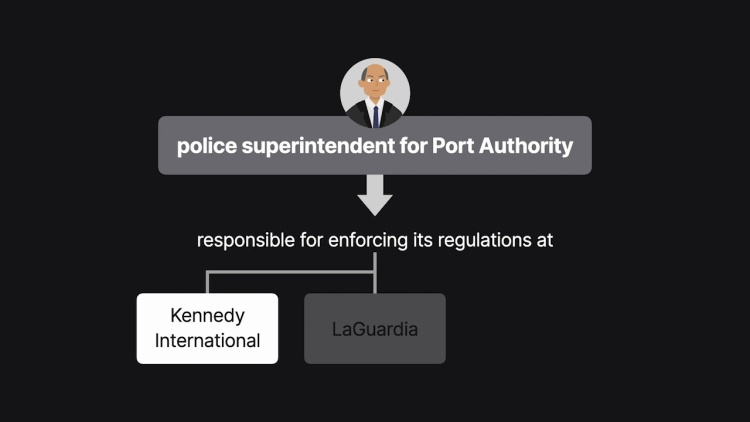Lee v. International Society for Krishna Consciousness, Inc.
United States Supreme Court
505 U.S. 830, 112 S.Ct. 2709, 120 L.Ed.2d 669 (1992)
- Written by Abby Roughton, JD
Facts
The Port Authority of New York and New Jersey owns and operates three major airports in the New York City area and controls terminals at the airports. The airports were funded by user fees and were operated to make a profit. The terminals were generally accessible to the public and contained restaurants and snack stands, bars, newsstands, and stores. Most people who came to the terminals were airline or terminal employees, or they were at the terminals for air-travel-related purposes, such as taking a flight or accompanying passengers. The Port Authority adopted a regulation forbidding the repetitive solicitation of money and the distribution of literature within the terminals. However, the Port Authority permitted solicitation and distribution on the sidewalks outside the terminal buildings. International Society for Krishna Consciousness, Inc. (ISKCON) (plaintiff), a religious group whose members solicited funds and distributed literature in public places to support its movement, brought an action against Walter Lee (defendant), a Port Authority official, in federal district court on the grounds that the regulation abridged the group’s First Amendment rights. The district court granted summary judgment to ISKCON. The court of appeals affirmed in part and reversed in part, upholding the solicitation ban and striking down the distribution ban. The United States Supreme Court granted certiorari. In a separate opinion, International Society for Krishna Consciousness, Inc. v. Lee, 505 U.S. 672 (1992), the Supreme Court affirmed the appellate court’s judgment upholding the solicitation ban.
Rule of Law
Issue
Holding and Reasoning (Per curiam)
Dissent (Rehnquist, C.J.)
What to do next…
Here's why 907,000 law students have relied on our case briefs:
- Written by law professors and practitioners, not other law students. 47,100 briefs, keyed to 996 casebooks. Top-notch customer support.
- The right amount of information, includes the facts, issues, rule of law, holding and reasoning, and any concurrences and dissents.
- Access in your classes, works on your mobile and tablet. Massive library of related video lessons and high quality multiple-choice questions.
- Easy to use, uniform format for every case brief. Written in plain English, not in legalese. Our briefs summarize and simplify; they don’t just repeat the court’s language.





